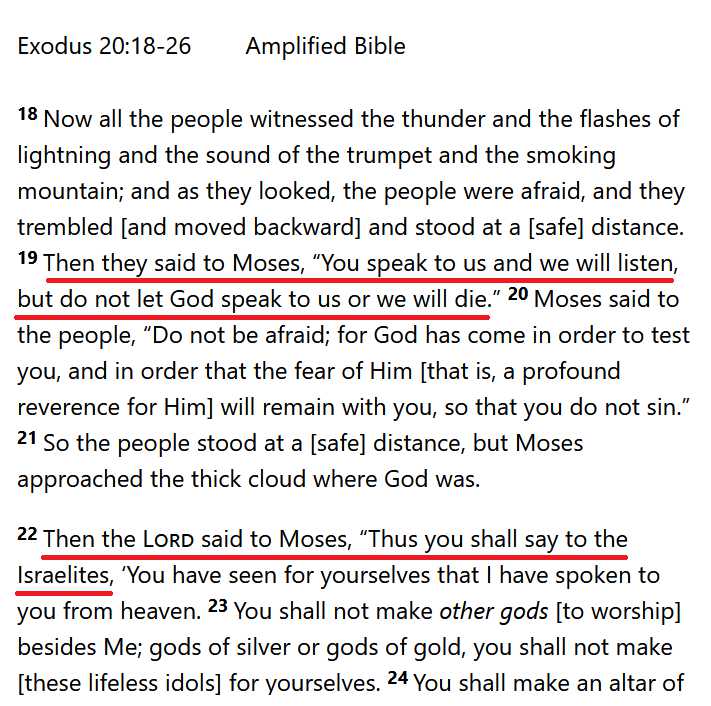Watch
Events
Articles
Market
More
10 Commandments or "10 Commandments"?
I was brought up in a church where the 10 Commandments where made out to be the entirety of Father's laws (well, excluding keeping the sabbath). And then Yeshua "added" to the law that: "love God with all your heart and your neighbour as yourself". This to me is the summary of the law and not a new or different law...
When I look at Exodus with a different set of lenses then it reads a bit differently now. Father first utters the first 10 commandments and then the nation interrupts Him out of fear. They then ask that Father rather speak THROUGH Moses to them.
Father then continues speaking, but this time "through" Moses.
Does the latter part of the instructions then become less of an instruction as Moses speaks it or should the 10 Commandments become known by another name so that the rest of the instructions are also included in our way of thought?
What are your thoughts on this? Please leave your comments below.




GidgetsMom
Delete Comment
Are you sure that you want to delete this comment ?
GidgetsMom
Delete Comment
Are you sure that you want to delete this comment ?
Patrick Lauser
"And he wrote upon the tables the words of the covenant, the ten commandments." Ex 34
"And he declared unto you his covenant, which he commanded you to perform, even ten commandments; and he wrote them upon two tables of stone." De 4
"And he wrote on the tables, according to the first writing, the ten commandments, which Yahweh spake unto you in the mount out of the midst of the fire in the day of the assembly: and Yahweh gave them unto me." De 10
They were the ones written on the tables, and after they were listed again in Deuteronomy Moses said of them:
"These words Yahweh spake unto all your assembly in the mount out of the midst of the fire, of the cloud, and of the thick darkness, with a great voice: and he added no more. And he wrote them in two tables of stone, and delivered them unto me." De 5
So they were a specific group, and like the two great commandments the rest would be connected to them.
Some Jewish traditions have their 613 list of commandments, which, having read, I find it very badly made and bearing many ungodly interpretations. One of these is the heresy that no prophet (prophet!) can add a commandment to the 613, which is to put the Torah above God who gave it: a man cannot reject one word of God "in favour" of another word of God. It is the same God, and to disobey any word of his is death.
For example:
"As his part is that goeth down to the battle, so shall his part be that tarrieth by the stuff: they shall part alike. And it was so from that day forward, that he made it a statute and an ordinance for Israel unto this day." 1S 30
This command of God's prophet is as binding as when Moses said the circumcised were not to eat unclean animals.
Christ gave two examples in his rebuke of the Pharisees, one being David eating the shewbread which was not lawful, and the other being how the Torah commands priests to work on the sabbath ("profane the sabbath" are the words he used).
In short, if someone tries to tell God when to stop talking, it is he who will be silenced.
"And a certain man of the sons of the prophets said unto his neighbour in the word of Yahweh, Smite me, I pray thee. And the man refused to smite him. Then said he unto him, Because thou hast not obeyed the voice of Yahweh, behold, as soon as thou art departed from me, a lion shall slay thee. And as soon as he was departed from him, a lion found him, and slew him." 1K 20
Delete Comment
Are you sure that you want to delete this comment ?
Bro Richard
Delete Comment
Are you sure that you want to delete this comment ?
Bro Richard
Delete Comment
Are you sure that you want to delete this comment ?
Bro Richard
Delete Comment
Are you sure that you want to delete this comment ?